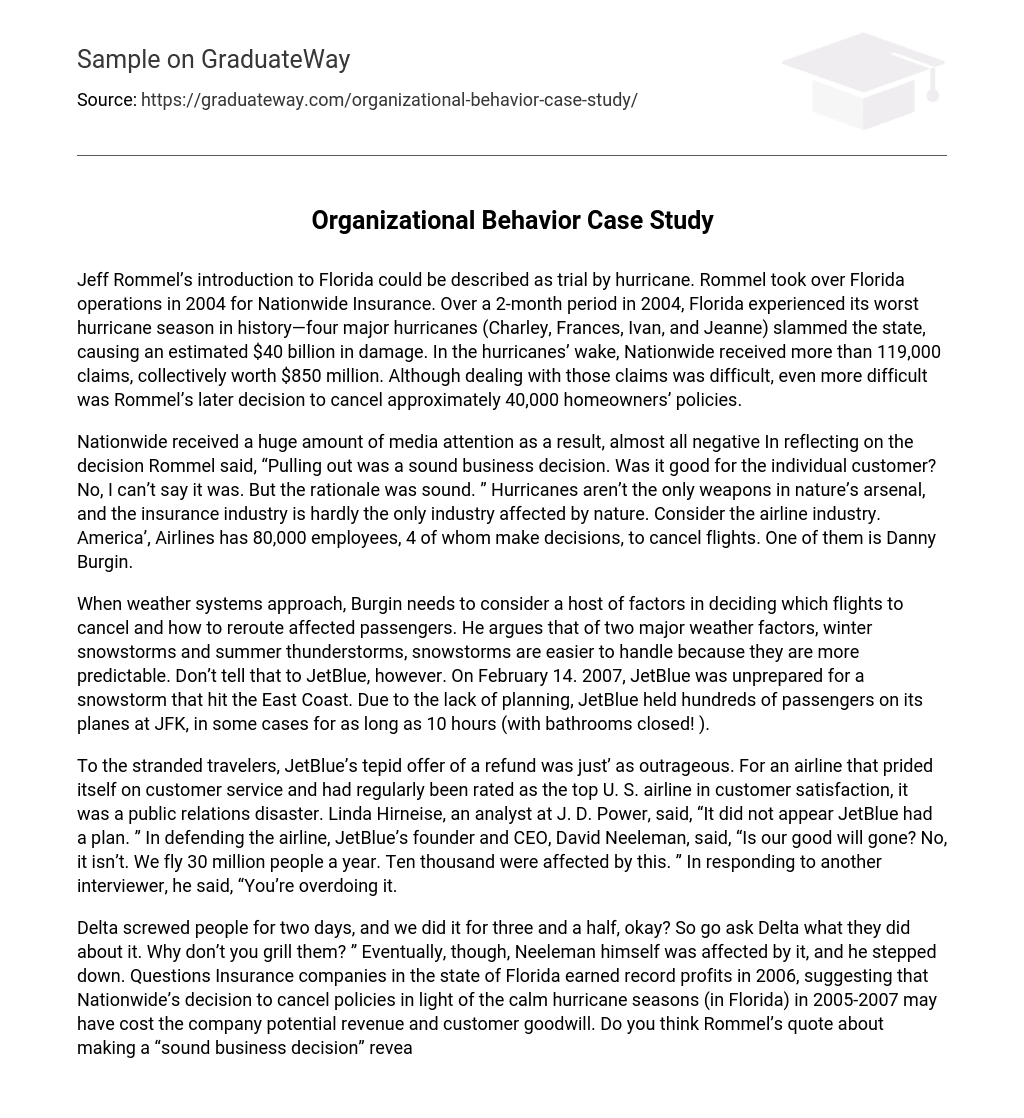Jeff Rommel was introduced to Florida in a challenging manner, as he took on the role of overseeing Nationwide Insurance’s operations in the state in 2004. During that year, Florida faced its most devastating hurricane season, with four major hurricanes (Charley, Frances, Ivan, and Jeanne) causing an unprecedented $40 billion worth of damage. In the aftermath of these hurricanes, Nationwide had to handle over 119,000 claims, amounting to a total value of $850 million. However, Rommel faced an even tougher decision later on – cancelling approximately 40,000 homeowners’ policies.
Nationwide received significant negative media attention, despite the fact that withdrawing was advantageous for the company but not for individual customers. However, the decision itself was logically justified. It’s important to remember that industries can be affected by other natural disasters besides hurricanes, as demonstrated by the airline industry. American Airlines, for instance, has a workforce of 80,000 employees but only four individuals, including Danny Burgin, possess the power to cancel flights.
When weather systems approach, Burgin must consider various factors to determine which flights to cancel and how to reroute affected passengers. He states that winter snowstorms and summer thunderstorms are the primary weather elements, with snowstorms being more manageable because of their predictability. However, JetBlue’s incident on February 14, 2007, challenges this belief. JetBlue was unprepared for a snowstorm on the East Coast, resulting in passengers being stranded on its planes at JFK for up to 10 hours without access to functioning bathrooms.
Despite JetBlue’s reputation for excellent customer service and consistent ranking as the top U.S. airline in terms of customer satisfaction, their offer of a refund to the stranded travelers was widely seen as outrageous. According to Linda Hirneise, an analyst at J.D. Power, many believed that JetBlue did not have a plan in place to handle this situation. However, David Neeleman, JetBlue’s founder and CEO, defended the airline by highlighting their track record of flying 30 million people a year with only 10,000 being affected by this incident. In response to another interviewer’s question about the situation, he implied that they were overreacting.
Delta caused inconvenience for customers for two days, while we caused inconvenience for three and a half days. Perhaps you should ask Delta what actions they took to address the situation. Why not hold them accountable? Eventually, Neeleman himself faced consequences and resigned. Concerns arise about insurance companies in Florida, as they made record profits in 2006. This suggests that Nationwide’s choice to cancel policies during the peaceful hurricane seasons in Florida from 2005 to 2007 may have resulted in missed opportunities for revenue and damaged customer relationships. Does Rommel’s quote regarding a “sound business decision” imply any biases in perception or decision-making?
Why or why not? Review the section on common biases and errors in decision making. Which biases and errors are relevant and why for companies such as Nationwide, American Airlines, and JetBlue that must respond to natural events? In each of the three cases discussed here, what organizational constraints influenced the decisions? How do individuals like Rommel, Burgin, and Neeleman consider ethics when making decisions? Do they take into account the well-being of policy owners and passengers?





